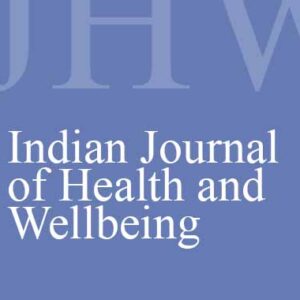Emotional Regulation Mediates the Relationship between Time Perspective and Psychological Well-being
Original price was: ₹ 201.00.₹ 200.00Current price is: ₹ 200.00.
Page: 07-15
Lakshmi1, Dolly Bansal2, D. Ravi3, Maria Madiha4, Devika Mohan5, and Selvapriya, M.6 (Manonmaniam Sundaranar University, Tirunelveli, Tamil Nadu1, DIPR, DRDO, Timarpur, Delhi2,5,4, Defence Institute of Psychological Research (DIPR), Defence Research & Development, Organization (DRDO), Timarpur, Delhi3, and Senior Technical Assistant- B (STA-B), DIPR, DRDO, Timarpur, Delhi6)
Description
Page: 07-15
Lakshmi1, Dolly Bansal2, D. Ravi3, Maria Madiha4, Devika Mohan5, and Selvapriya, M.6 (Manonmaniam Sundaranar University, Tirunelveli, Tamil Nadu1, DIPR, DRDO, Timarpur, Delhi2,5,4, Defence Institute of Psychological Research (DIPR), Defence Research & Development, Organization (DRDO), Timarpur, Delhi3, and Senior Technical Assistant- B (STA-B), DIPR, DRDO, Timarpur, Delhi6)
The present study aims to explore whether emotional regulation mediates the relationship between time perspective and psychological well-being. 332 participants (151 males, 181 females, aged 18-35 years) were recruited using snowball sampling. Standardized scales were used for data collection-Emotional Regulation Questionnaire, Zimbardo Time Perspective Inventory, and the Ryff Psychological Well-Being Scale. Descriptive statistics were computed, and Pearson correlation, t-tests, regression analysis (using SPSS V.26), and mediation analysis (using AMOS V.21) were conducted to analyse the data. The results revealed both significant positive and negative correlations between emotional regulation, time perspective, and psychological well-being. Gender differences were observed across various dimensions of emotional regulation, time perspective, and psychological well-being. Further analysis identified time perspective and emotional regulation as key predictors of psychological well-being, which encompasses aspects such as self-acceptance, autonomy, environmental mastery, personal growth, positive interpersonal relationships, and a sense of purpose in life. The association between time perspective and psychological well-being was considerably mediated by emotional control, according to mediation analysis.


